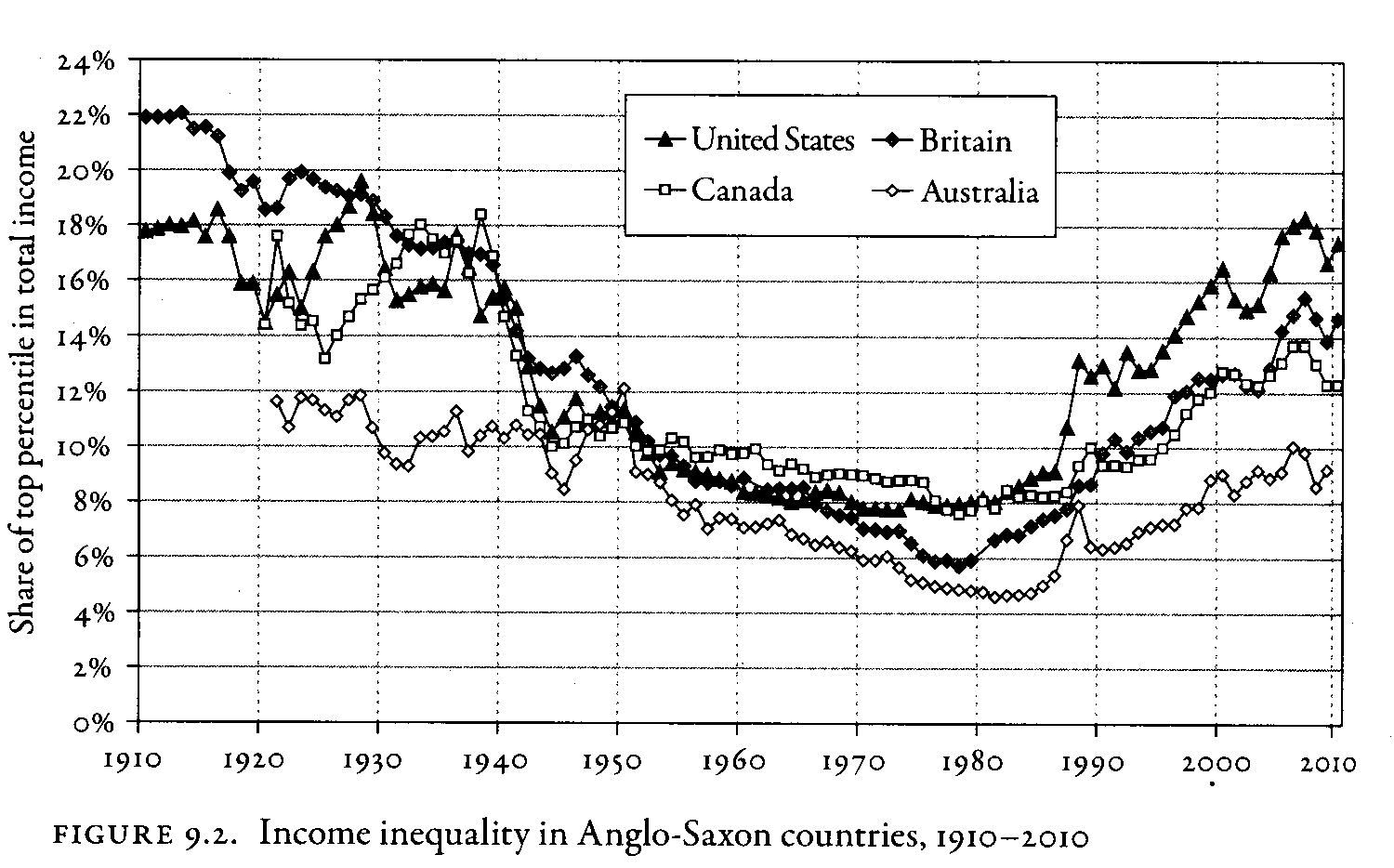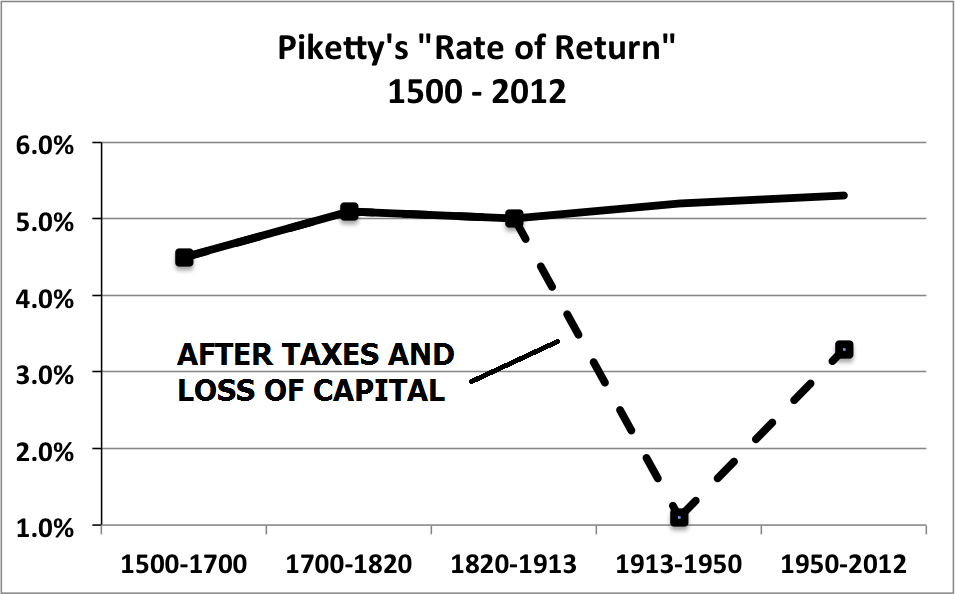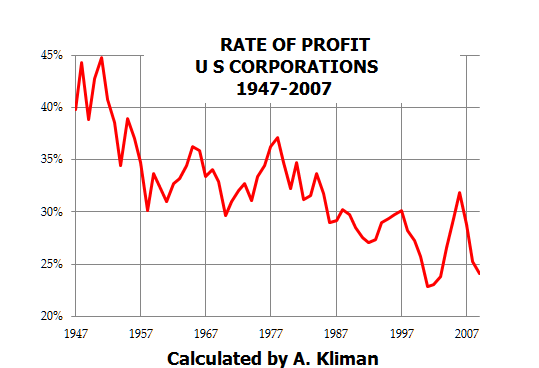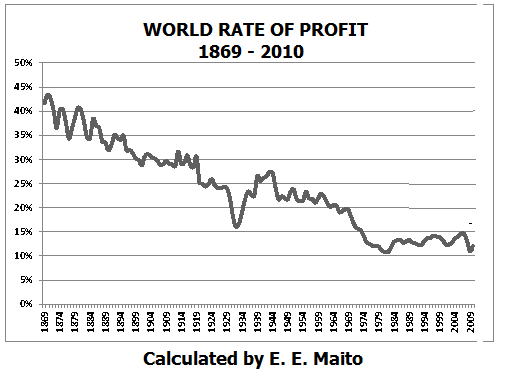
FIGHT FOR COMMUNISM!
International Communist Workers Party
| |
Thomas Piketty's Capital in the Twenty-First Century |
Bosses Seek Band-Aids; Workers Need Revolution |
| |
|
Thomas Piketty's book,
Capital in the Twenty-First Century, has been an Amazon top-seller recently,
which is remarkable since it's a 700-page economics text. Piketty amasses a
mountain of data that he uses to show that inequality in income and wealth has
increased greatly in the US and many other countries over recent decades,
comparable to what it was before World War I.
 Wealth and Capital Piketty focuses on the
growth of wealth, which he describes as the same thing as capital: This misunderstanding
of capital produces some weird results. For Piketty a worker's home is capital,
even though it doesn't generate surplus value for the owner. Piketty counts an
imaginary rent that homeowners supposedly pay themselves as profit for the
homeowner, and he includes stocks, bonds and workers' retirement savings and
life insurance policies as capital, even though they are not used to make a
profit. Piketty shows that
inheritance, a very large source of wealth in the past, is growing again and he
predicts it will continue to increase in the future. 
The "Rate of Return" Piketty claims that "capital" (i.e., all wealth) tends to have a constant rate of return throughout history of about 4 or 5 percent, even well before the age of capitalism. He defines the rate of return as "the yield on capital over the course of a year regardless of its legal forms (profits, rents, dividends, interest, royalties, capital gains, etc.) expressed as the percentage of the value of capital invested." (pg. 52) When you count imperialist wars and economic crises, however, you see big departures from 4% - 5% (see graph). The Falling Rate of Profit Piketty claims that
the central contradiction of capitalism is that the rate of return on wealth is
usually higher than the rate of economic growth, so that inequality becomes
greater and greater. Marx argued that the real problem is that the rate of
profit falls, even if wealth increases. 
Piketty claims to
prove that Marx was wrong about the tendency of the rate of profit to fall
unless exploitation increases. He does admit, however, that Marx would be right
unless there is "permanent growth in productivity and population." (pg. 228) Once capital is
properly defined, not as any income from owning something, but as the income
from businesses that exploit labor, data from the same sources as Piketty's
agree with Marx's ideas, and show that the rate of profit has had a clear
tendency to fall for a long time (see graphs). Piketty's "Solution" 
Like Obama and many
liberal policy-makers in the US, Piketty sees rising inequality as bad for the
capitalist system. He thinks that if workers are forced to accept a smaller and
smaller share of national income the eventual result would be "proletarian
revolution and general expropriation" of capitalists. Piketty's solution to
rising inequality is a world-wide tax on wealth. He
admits that it would be practically impossible to do this on a world scale, but
proposes starting with a wealth tax in Europe that would tax the largest
fortunes by 2% per year. Inequality, "National Unity" and
War Piketty's
book has been praised to the skies by liberal economists. They like it because he argues that rising
inequality is a fact and isn't a good thing, and because he holds out hope that
capitalism can be fixed. Some US capitalists do understand that rising
inequality tends to make workers angrier, less patriotic and more difficult to
control. They are particularly worried about getting workers to accept the huge
causalities and the financial costs of a future imperialist war with
China. The ability of the US
bosses to keep inequality from rising is very limited, however. Right now they
can't even agree on a small increase in the minimum wage, or on limiting Wall
Street bonuses, much less putting a big tax on their own wealth. Imposing big wealth taxes would weaken
giant corporations in their competition with foreign rivals and make the fall
in the rate of profit worse. So the best they can produce will be a few
band-aids, while the opportunities for communist revolution grow. |